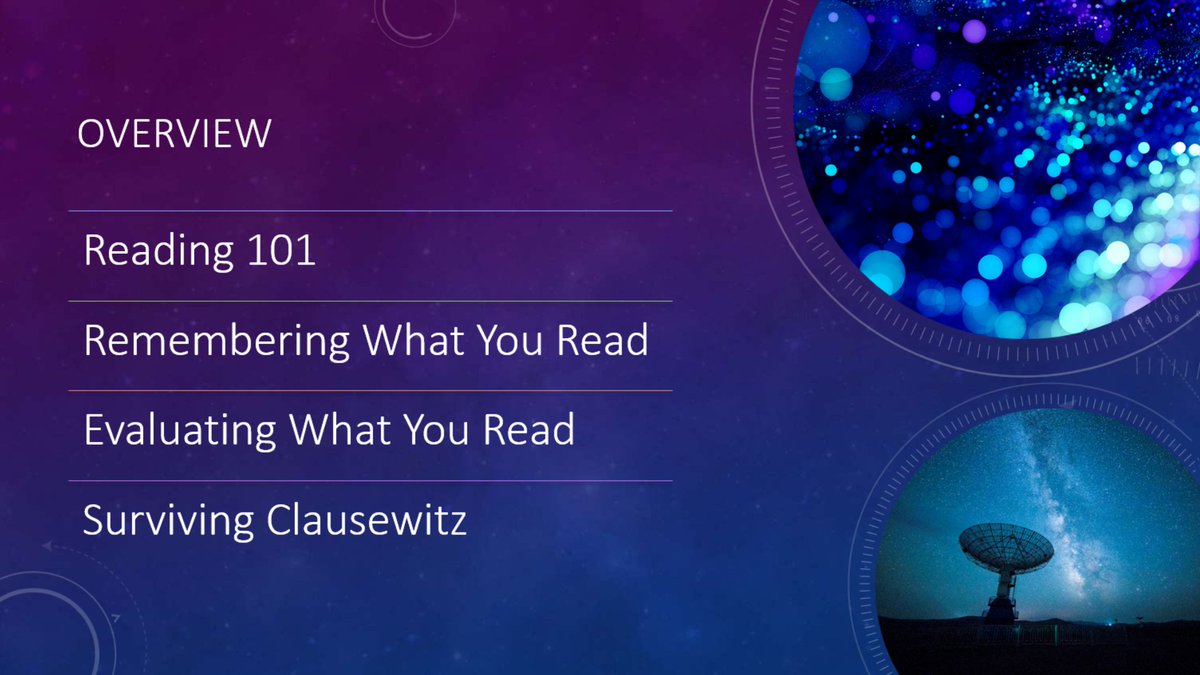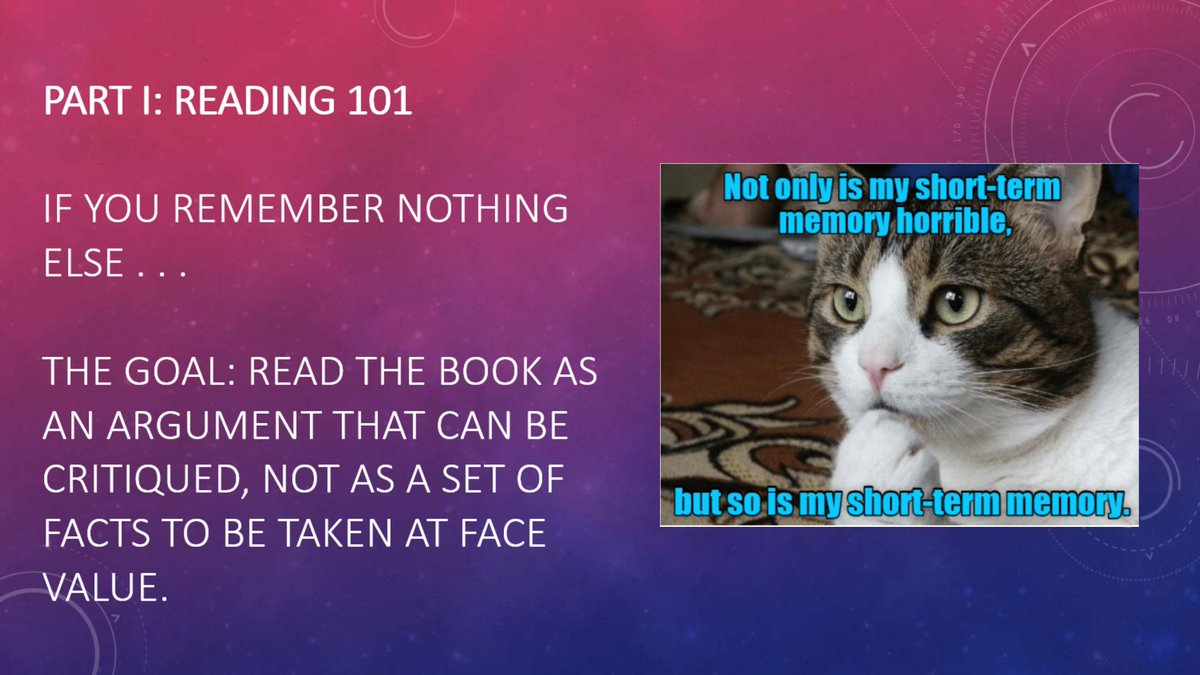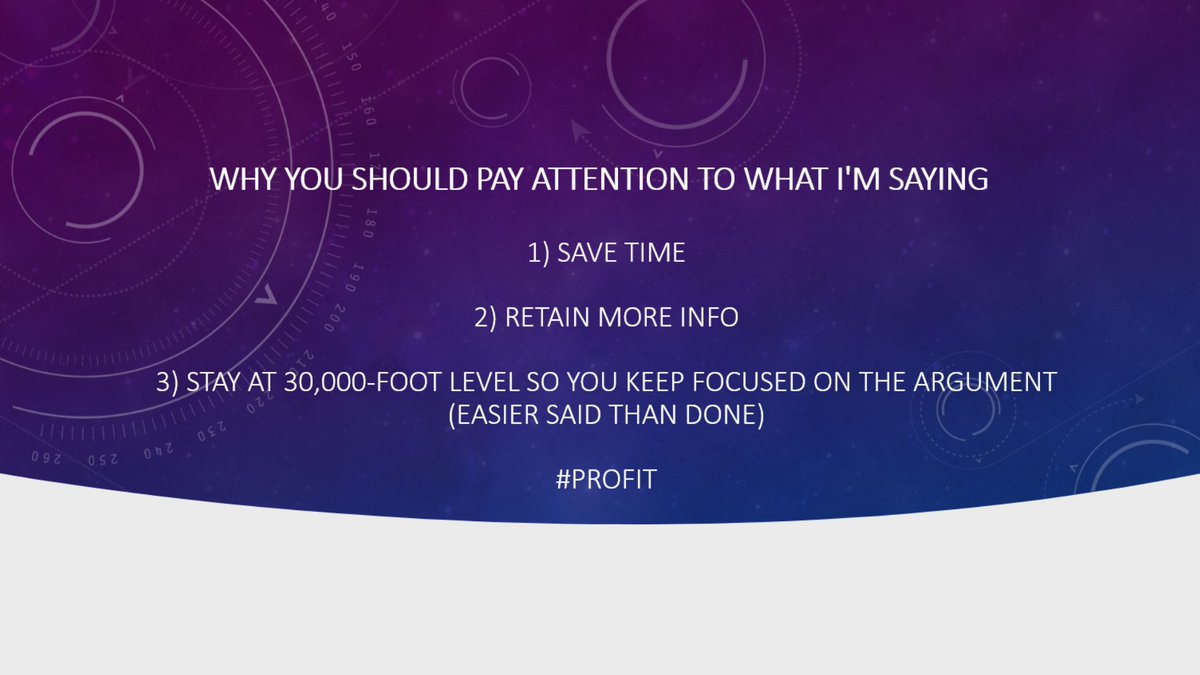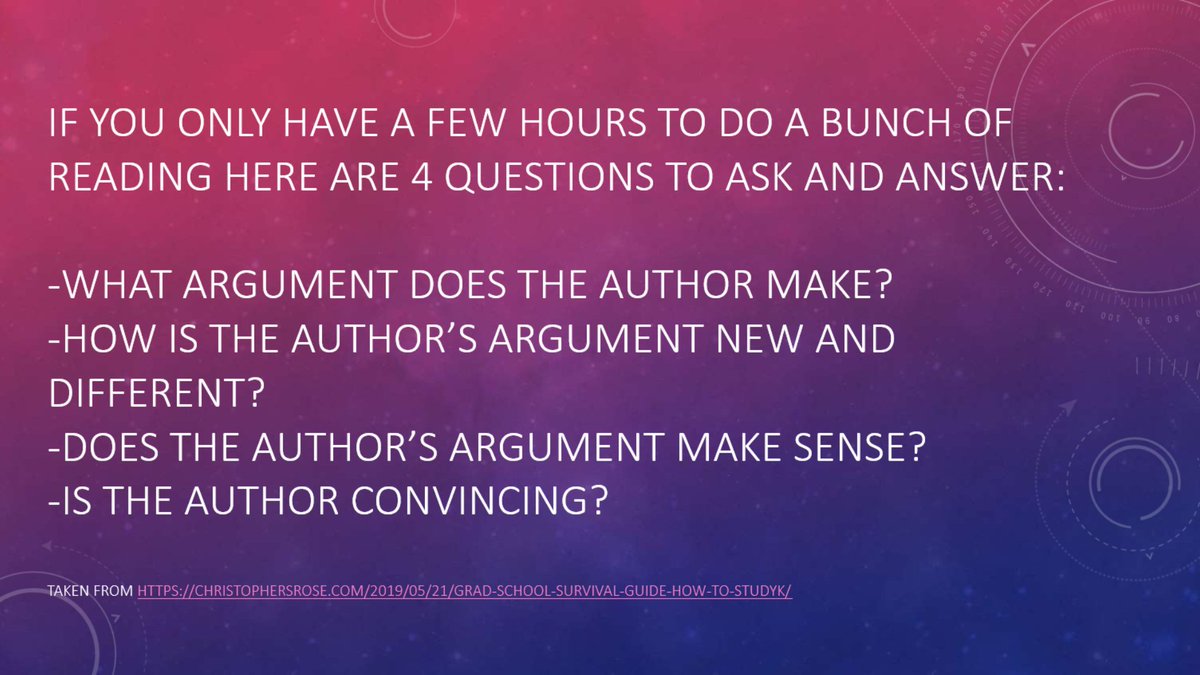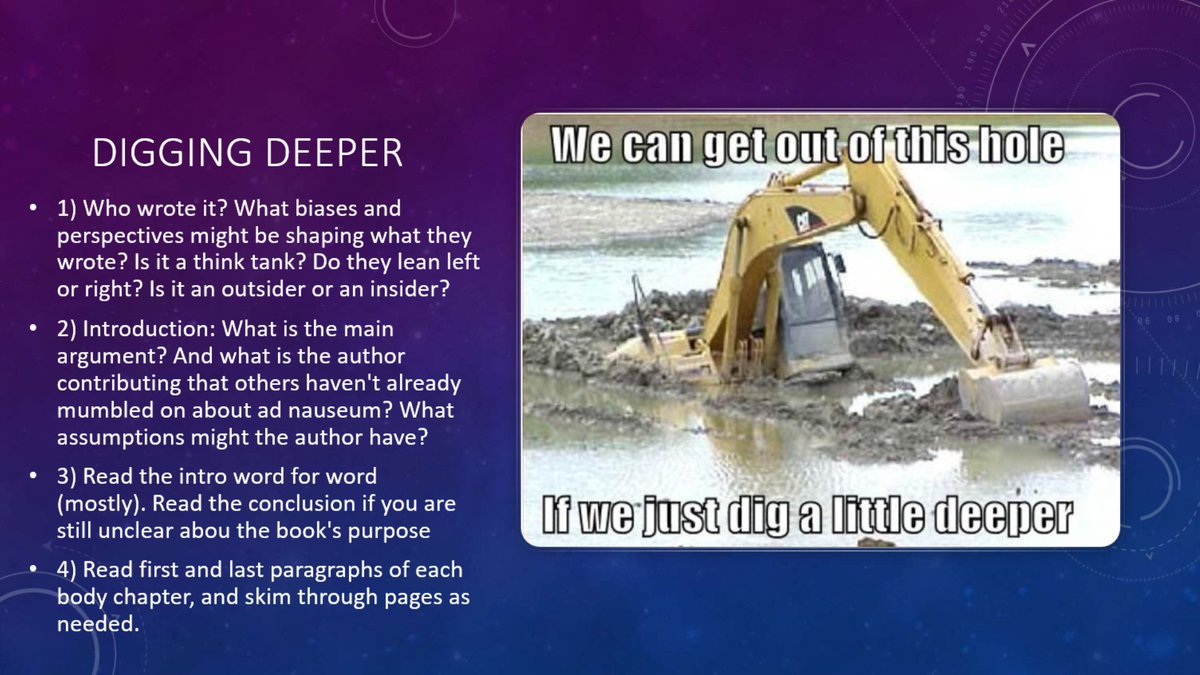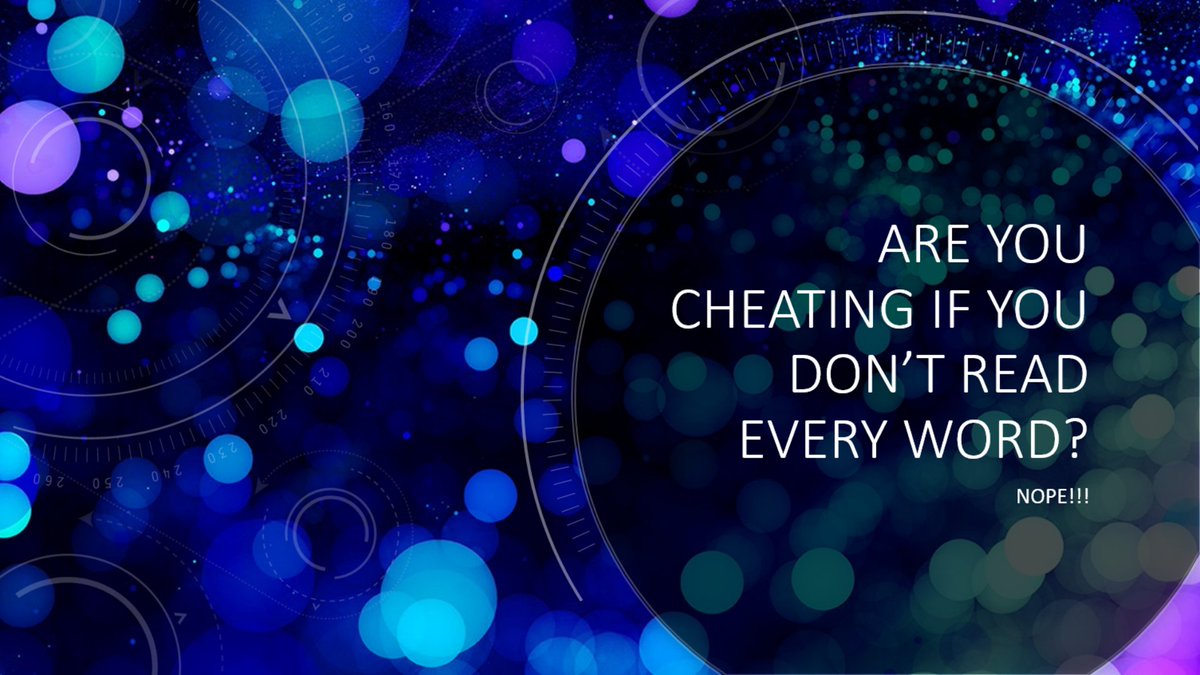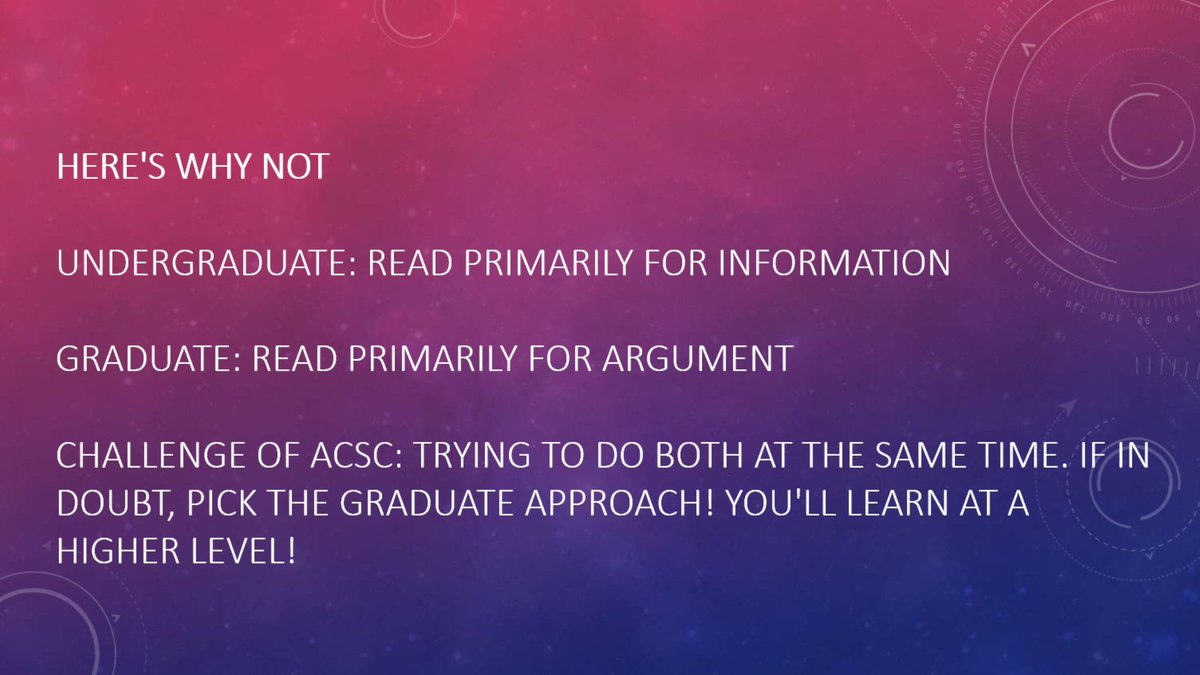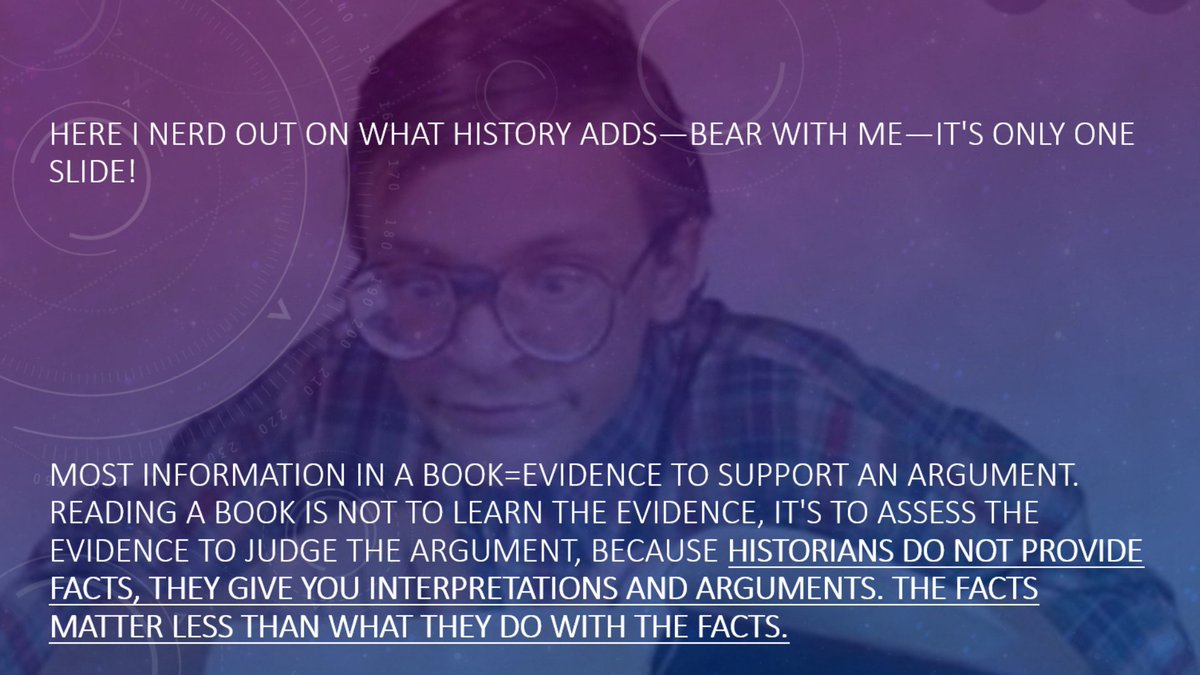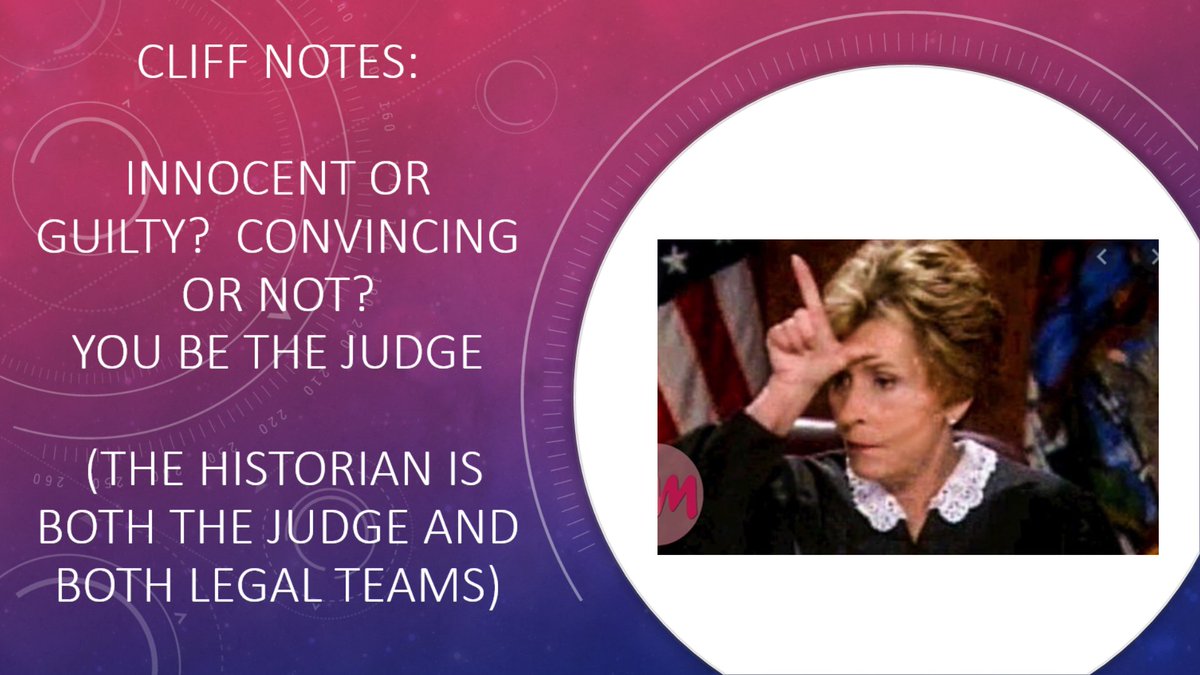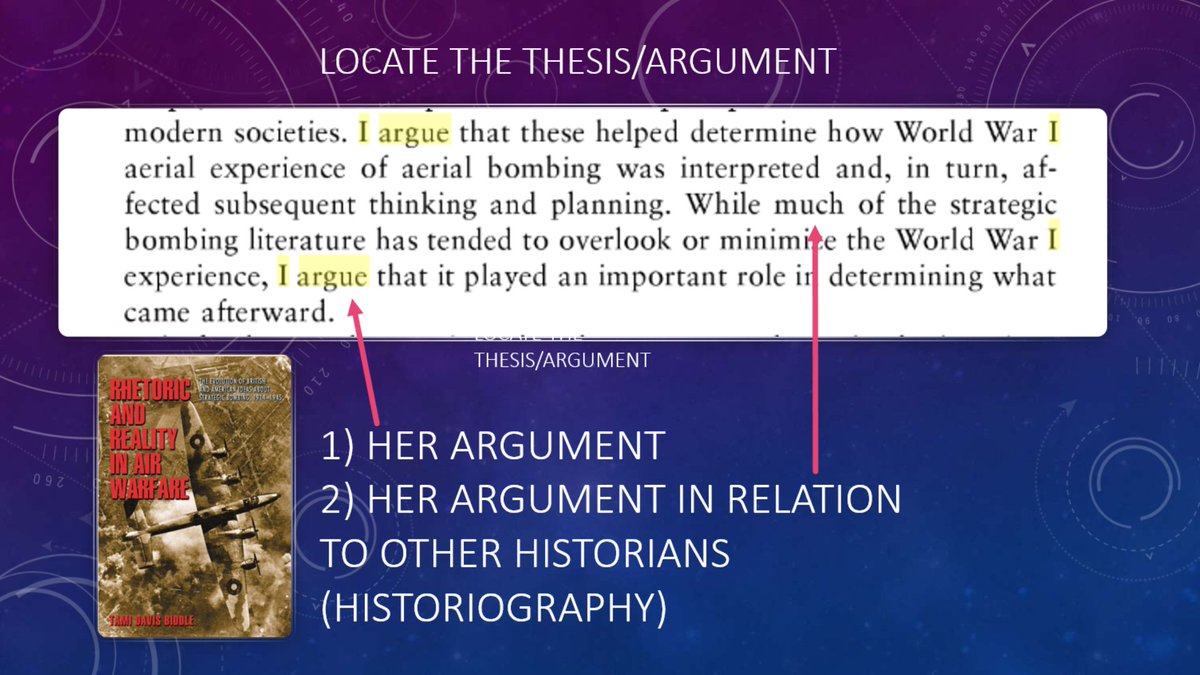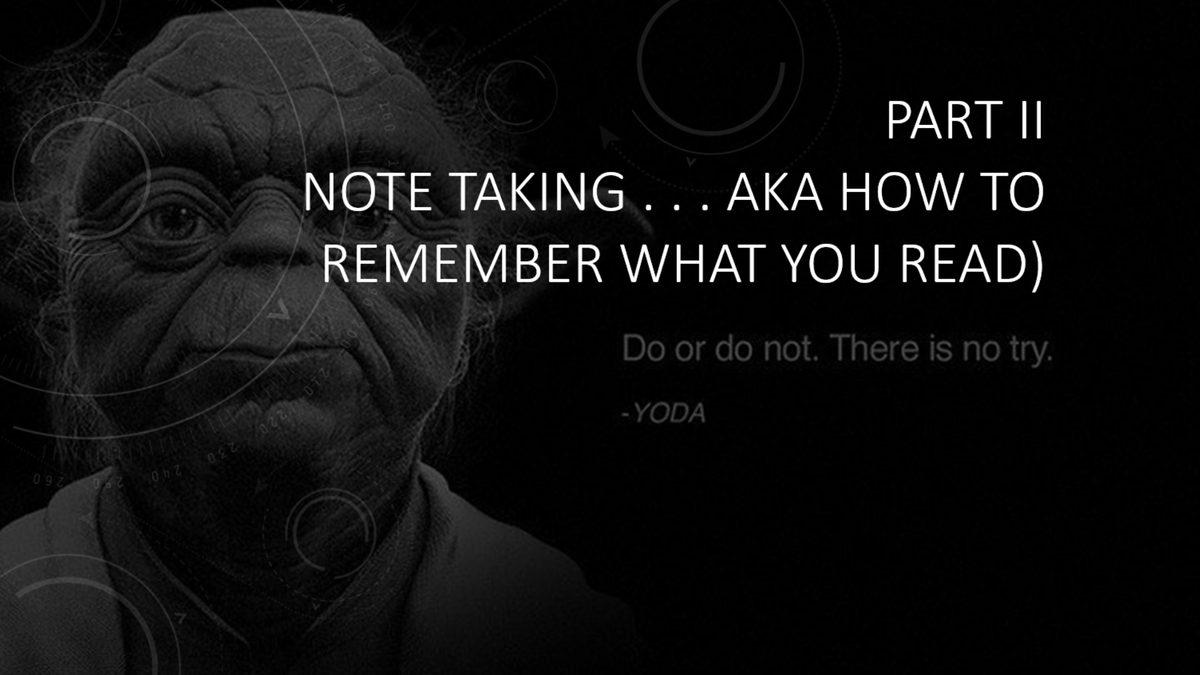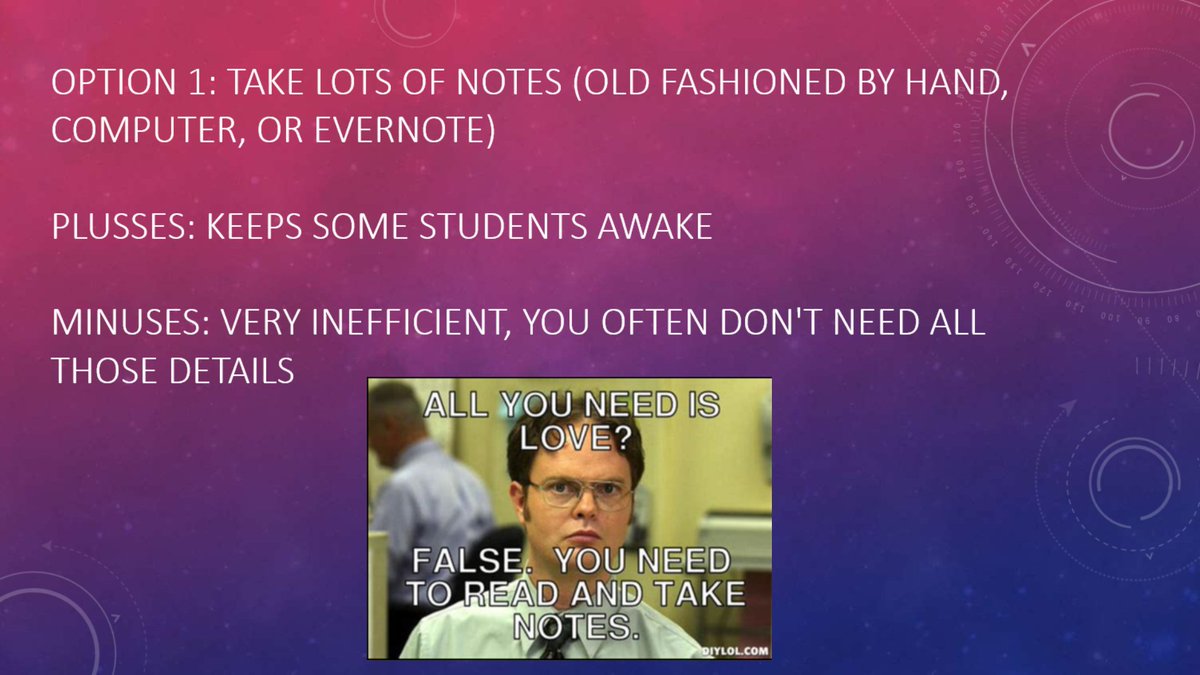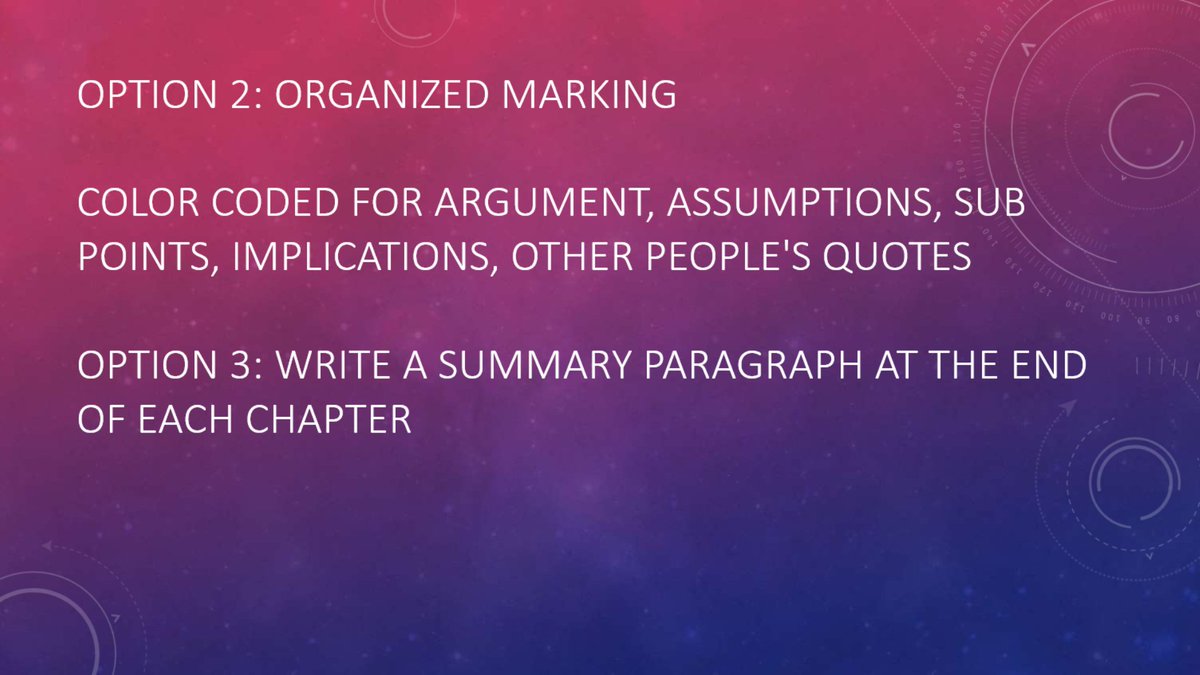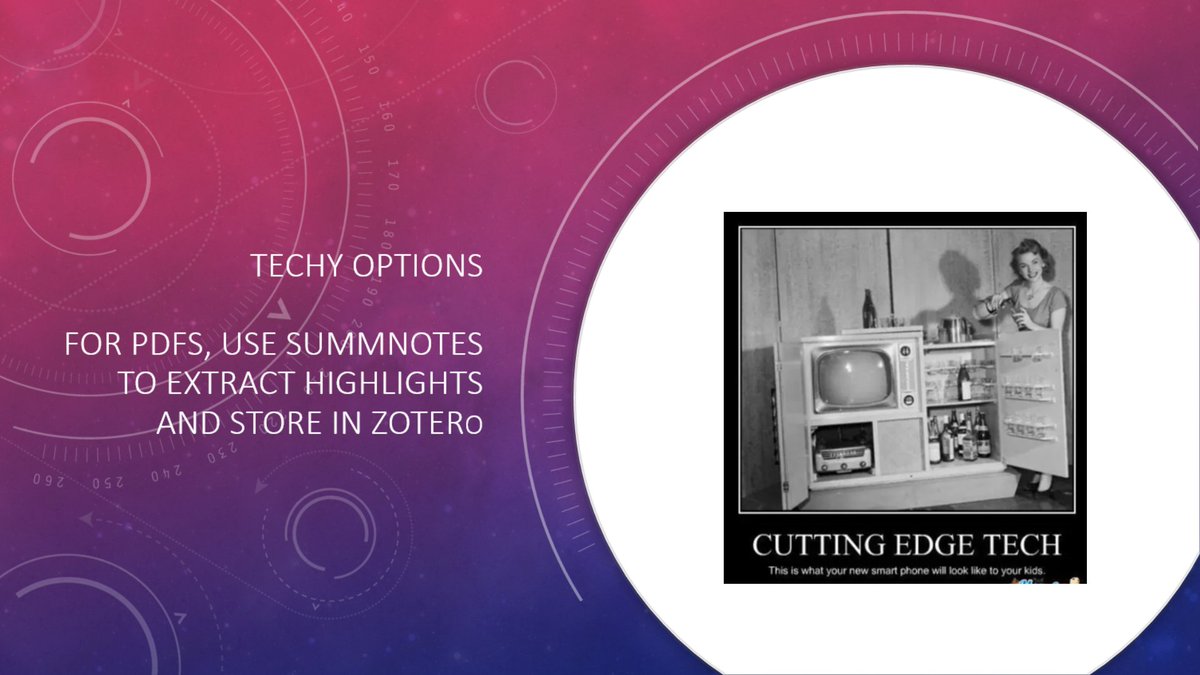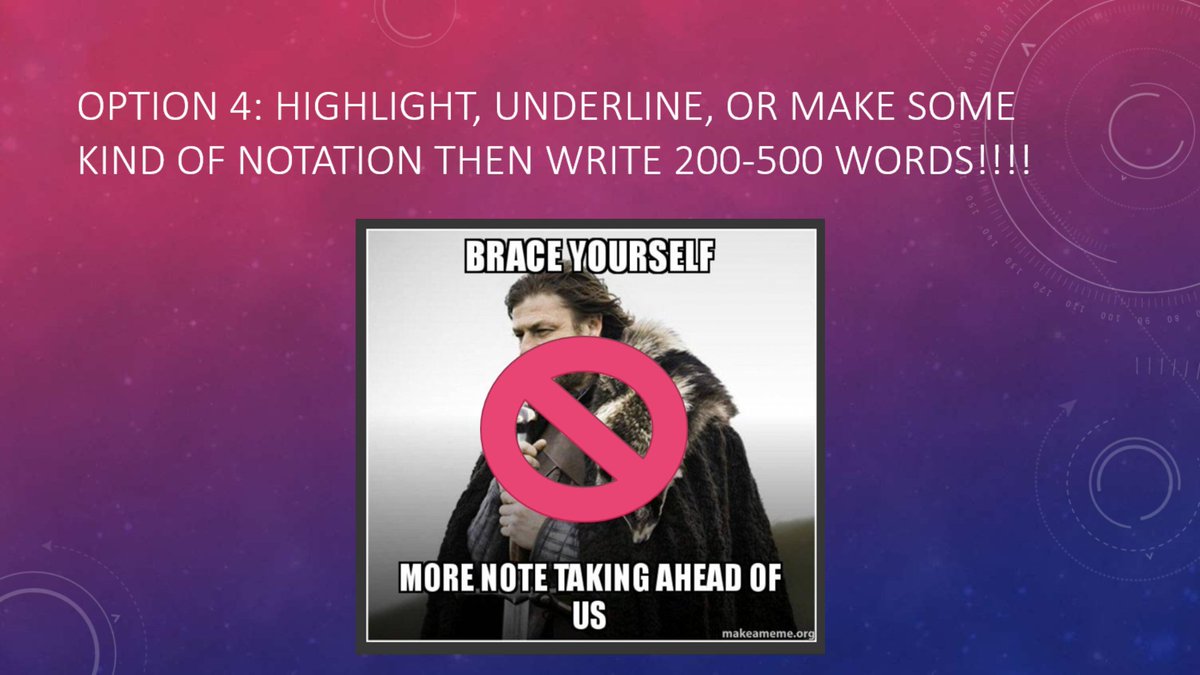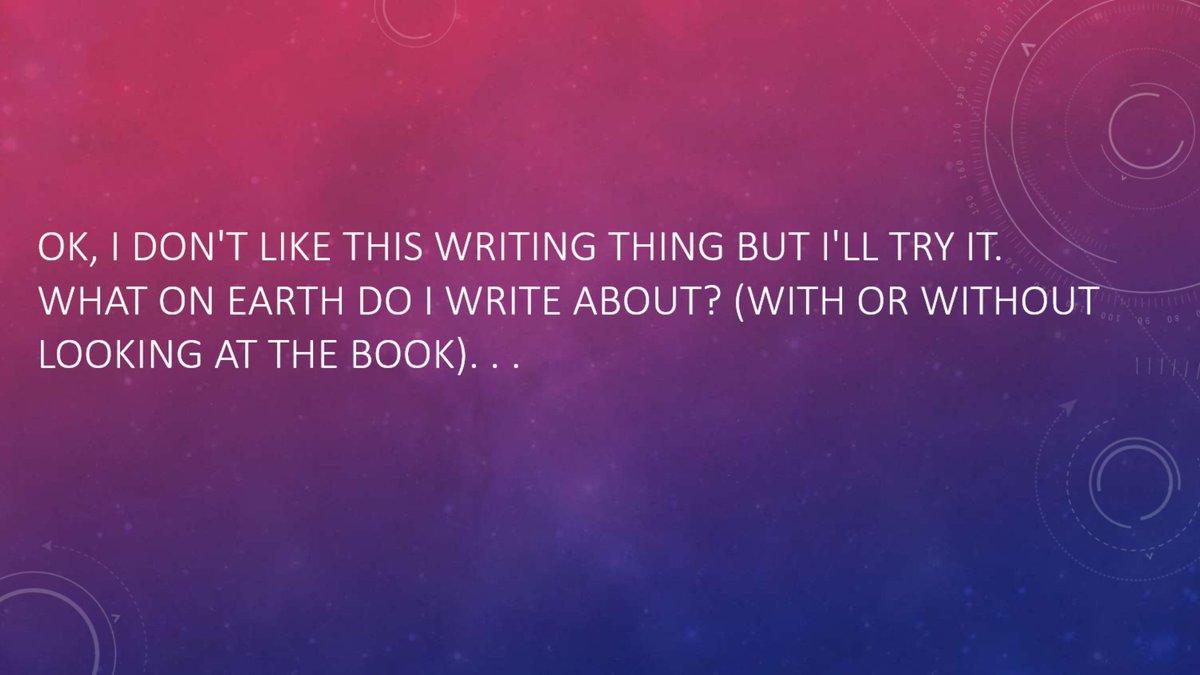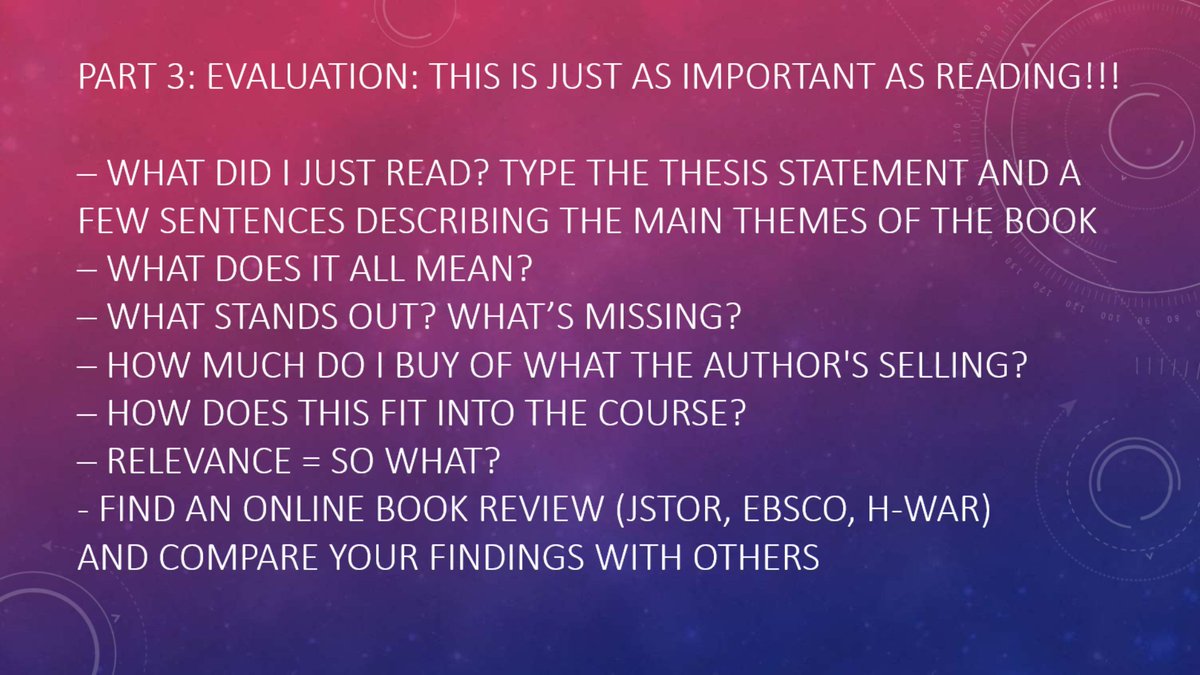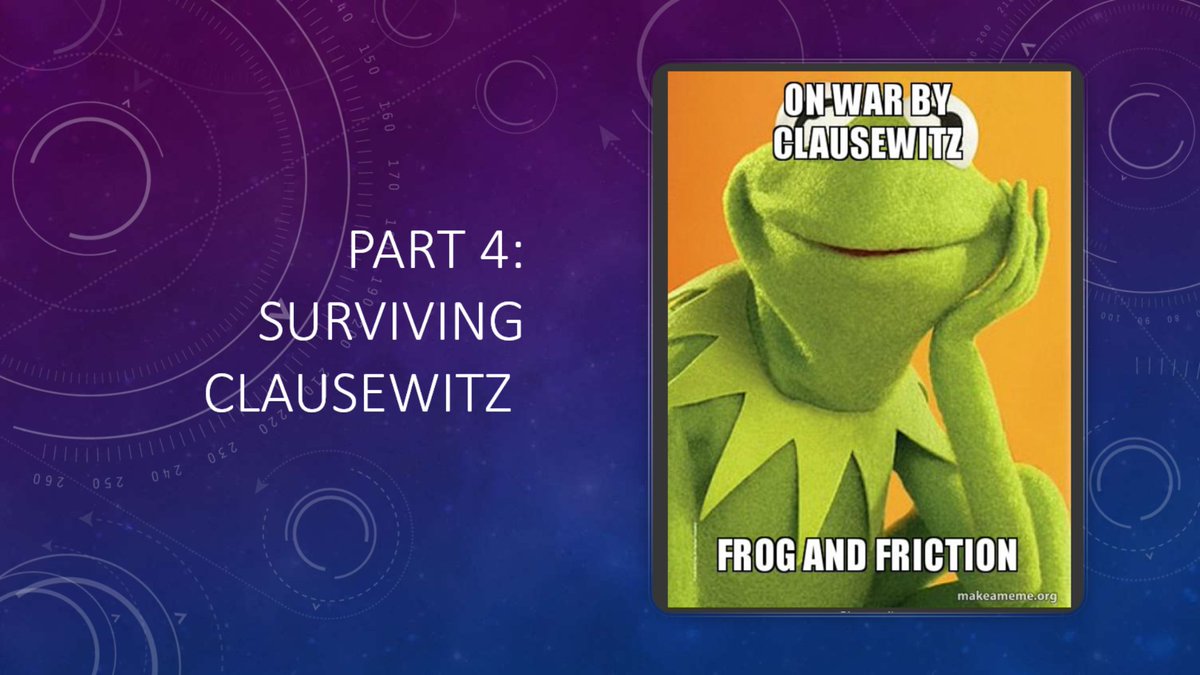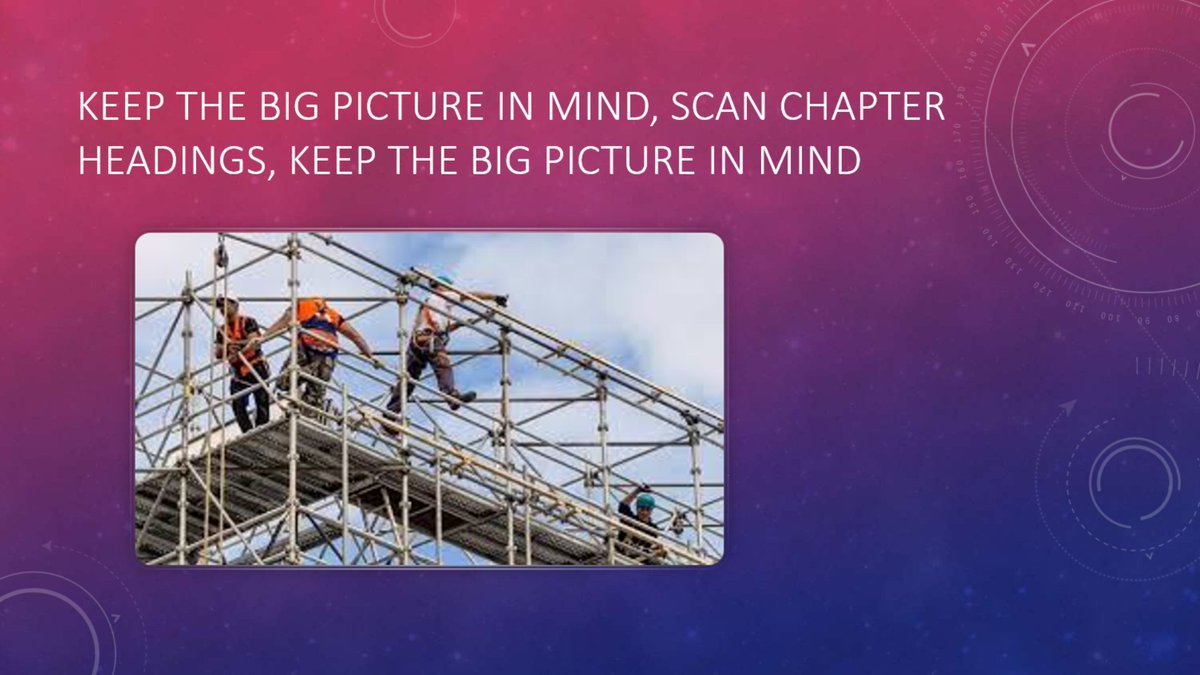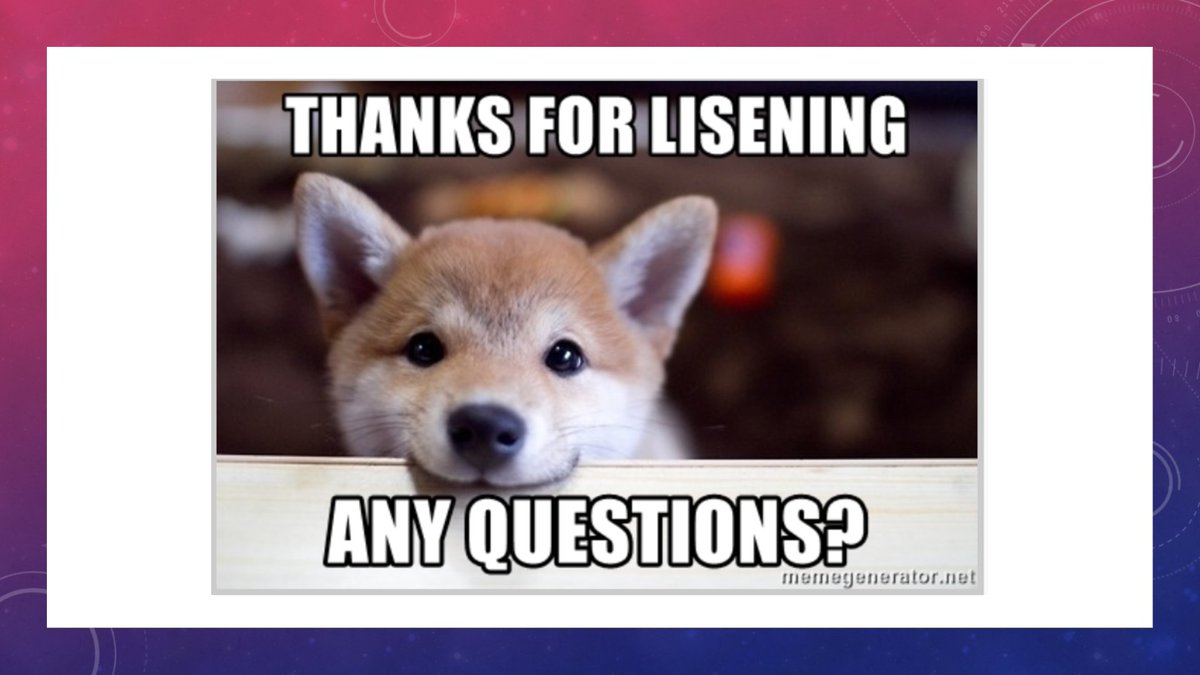Thanks to everyone who provided suggestions. Here is my draft if this is helpful to anyone 1/ https://twitter.com/Heather_at_ACTS/status/1265730459620827136">https://twitter.com/Heather_a...
Going to ACSC lasts about as long as expecting a baby. (although this talk is for a shorter course) 2/
It& #39;s not just about reading. It& #39;s about remembering and evaluating. These areas should receive just as much focus as time in reading 3/
I really want my audience to understand the historian& #39;s perspective on reading: that it is about engaging with the author& #39;s argument, which is a larger argument with other historians& #39; arguments 4/
If you are going to read AND evaluate a book efficiently, you can& #39;t go wrong if you read every page with these 4 questions in mind 6/
Ideally, you& #39;ll also take the time to wrestle with some questions that dig a bit deeper while you are skimming 7/
Because it& #39;s okay to skim, a lesson it took me too long to figure out in grad school 8/
The challenge of PME is that students try to learn the reading while evaluating it. That& #39;s hard if you are unfamiliar with the material. So just focus on argument & evaluation 9/
Here I try to explain what history books do. They take facts and they make magic-or arguments for all you cynics ;)-out of how they intepret the evidence. It& #39;s like a puzzle. Throw them on the floor and each historian will arrange pieces differently, throwing some out... 10/
Because historians carefully assess the plaintiff and the defendant before acting as the judge. But they aren& #39;t the only judge. Which is where you come in. . . you have to judge among the various judges because THERE IS NO RIGHT ANSWER IN HISTORY 11/
Thus, again, it goes back to arguments. Sometimes historians are really nice and make their argument clear, as below. They should also tell you what the other "judges" (i.e. historians) have determined on the subject, also done here. ...12/
Biddle is telling us that everyone else has downplayed WWI, and she& #39;s going to correct that failing. (The nerd word for this is historiography, which just means the arguments historians have with each other) 13/
Now it is time to think about taking notes so you can remember unless you have a photographic memory, and then I hate you ;) 14/
The ol& #39; fashioned way is to take notes. When I ask students not to waste their time doing this, some tell me it keeps them awake. So there& #39;s that . . . but the reason I don& #39;t like note taking is because you don& #39;t REALLY know what details are important until you have a sense...15/
of the book& #39;s scope, so I think they just lead to a lot of wasted time, because you& #39;ve diligently written down stuff you later will realize isn& #39;t critical, it just helps you understand 16/
@CharlieGoetz has a pretty organized way of marking up his books while looking for key, big-picture information. Also there is the approach of closing the book at the end of each chapter and writing/typing a few sentences. If you can do that with the book closed, then you& #39;ve..17/
been digesting as you& #39;ve been reading. Congrats! If you have to go back and look at your markings, that& #39;s okay, too! 18/
If you& #39;re reading PDFs, @first_pull suggests highlighting through @summnotes and then extracting and storing in @zotero. This sounds really efficient and helpful for paper writing! 19/
My favorite way is just to not take notes. I mark in my books with tiny marks (or highlight or whatever) and then, once I& #39;m done, I sit down and summarize what I& #39;ve read. This is one of the most active ways to wrestle with what you& #39;ve just read, in my opinion, while...20/
evaluating which, again, is JUST as important as reading, and will greatly enhance your time in seminar and your memory. But then the anxiety kicks in--what do I write about? 21/
Well, it will get a lot easier, but here are some questions to help you evaluate. . . ideally you might consider trying to spend 15 minutes to every hour you read. It just depends on your comfort with writing 22/
Part 4 is trying to help students prepare to read one of the harder readings: Clausewitz, which I am still working on. 23/
But of course focusing on the scaffolding, not the nuts and bolts that hold the scaffolding together, is crucial, especially for Clausewitz& #39;s writing style 24/

 Read on Twitter
Read on Twitter
